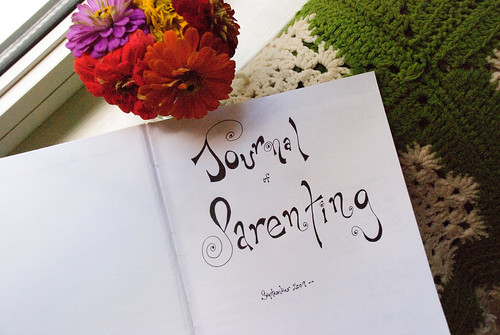REALITY CHECK: “Results-Driven Parenting” is what I call using how you choose to respond and what you choose to reinforce in your daily interactions with your children to produce real and lasting change in their social, emotional, moral, cognitive, or behavior. The technique is based on solid psychological principles, is simple to use, and yet is the one tool I find parents don’t use nearly enough. Instead, we’re a bit too much “auto-pilot” in our approach without putting the brakes on nearly enough to pause and reflect on our actions. So your Reality Check is how often are you using “Results-Driven Parenting” with your family?
Suppose you were allowed just one wish for your children and just suppose your wish would be granted. Here are the rules:
1. The wish must be something you personally can control so it can’t things like your child’s health, financial status, or longevity.
2. The wish must also be something you can inspire or nurture in your family.
You may wonder how that wish could have to do with parenting, but what if I were to tell you that your answer is how to create the best legacy to leave your children? All of a sudden the exercise suddenly becomes far more significant, right?
You see, the answer to your wish is what will help guide your daily actions and help you stick to what really matters most in your parenting. That’s because that wish is what you want for your central mantra for your day-to-day interactions with your family. Your answer will help you make decisions based on what you know if right for your children, so it will reduce guilt, stress, and second-guessing. It is how to develop a moral compass in your sons and daughters that will guide their behavior for the rest of their life. That’s just how serious your wish is. After all, knowing what you stand for and reinforcing your beliefs is how you instill your values in your children.
So what are you waiting for? Let’s get started in creating your legacy for your children.
Step One: Create a List of Your Values
Wait until your kids are asleep, turn off the TV, and turn on voicemail. Get yourself focused and leave enough time so you can really think. Take out your laptop, or pad and pencil. Now answer this question:
Aside from good health, happiness and security, what character traits do you hope your baby will possess as an adult?
That answer will be your greatest wish for your child. Take time to think through your response. Write down as many answers as you can think of, but do try to write at least ten traits.
To get you started, here are a few wishes that parents in my workshops tell me are high on their list: compassion, respectful, responsible, persevering, honest, empathic, reliant, frugal, humble, trustworthy, altruistic, peaceful, spiritual, kind, resourceful, courteous, fair, charitable, joyful, just, sensitive, courageous, grateful.
Pick only those traits that are most important to you. The traits may be different from your parenting partner, but that’s fine. What traits matter most to the two of you – or each of you? The more specific you are in defining what value(s) matter, the more you’ll acknowledge, discuss, point it out in others, choose what to discipline, set your rules and reinforce those values in your child. And, the more likely your child will actually adopt those values.
Step Two: Choose Your Top Three Family Values
 Now reread your list. Which traits really matter to you the most? Start crossing off ones that aren’t as important to you until you finally have your top two to five family values.
Now reread your list. Which traits really matter to you the most? Start crossing off ones that aren’t as important to you until you finally have your top two to five family values.
Step Three: Select Your Top Value
Select the one or two values you want most to instill in your children right now. This is your greatest wish you hope for in your family (other then of course happiness, health and success — but remember we’re discussing character traits that can be nurtured). Some parents choose a different virtue during different times periods in their children’s lives.
Next, think seriously: Why did you choose those beliefs?
 I strongly urge you to write your thoughts so you can read them again and again these next years. It will help reinforce what matters most in your parenting. Here are a few ways to preserve your ideas:
I strongly urge you to write your thoughts so you can read them again and again these next years. It will help reinforce what matters most in your parenting. Here are a few ways to preserve your ideas:
- Collect inspirational quotes that match your beliefs. Print them on cards then put them in a place where you’ll be sure to read them such in your organizer or taped to your bathroom mirror.
My girlfriend does this. She has glorious cards, quotes, and even personal sayings that she puts under glass on her bathroom vanity to remind her of her parenting legacy).
- Write a letter to yourself stating why you believe so strongly in your parent vision. On a specific day each year (such as on your birthday, Christmas, or Valentine’s Day) reread your message. Or do so once a month.
- Tell a close friend and then ask her to “gently” remind you ever so often of your belief.
- Start a parent journal and write your vision boldly on the opening page.
4. Use the Belief in Your Daily Life
Finally, you need to make sure you are using this value in your own everyday behavior. After all, the easiest way for your child to learn any new value is by actually seeing it in action. So intentionally start looking for ways to tune up your chosen value and it’s not too early to start practicing now.
If you think courtesy is important, than intentionally start being more courteous.
If self-control is your core value, than this is the time to start taking those deep breaths and counting to ten.
Remember also to reinforce your child whenever he or she displays the value. “I loved how you smiled at Grandma. That was being really kind. Did you see how her face lit up?” Be sure you name the value, and tell your child exactly how that virtue made a difference.
Best yet, if you take time to really reflect on what kind of parent you want to be and values and traits you want most to instill in your baby, you will be more likely have your wish come true. Doing so is also the best way to create a lasting legacy to your children.
And it’s also a simple way to apply those principles of Results-Driven Parenting.

Get more Parenting Solutions by following Michele Borba @MicheleBorba on Twitter or at her website for blogs, posts and breaking news in child development at: Michele Borba
Portions of this article are adapted from Michele Borba’s latest book, The Big Book of Parenting Solutions: 101 Answers to Your Everyday Challenges and Wildest Worries

